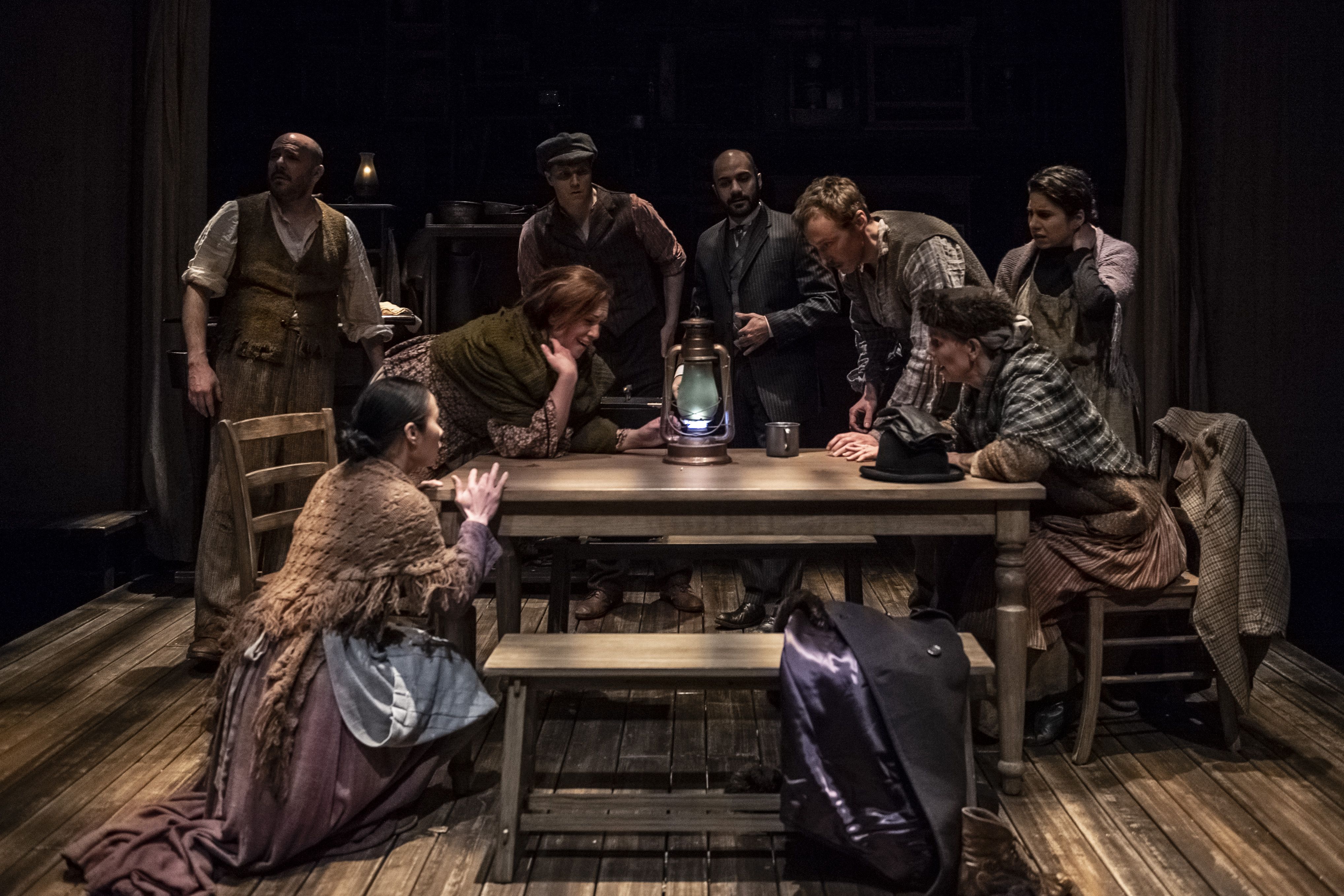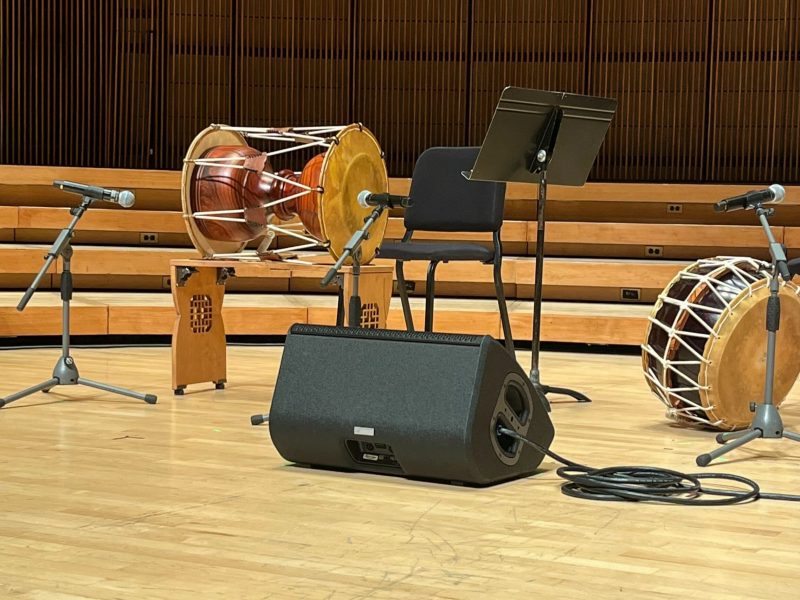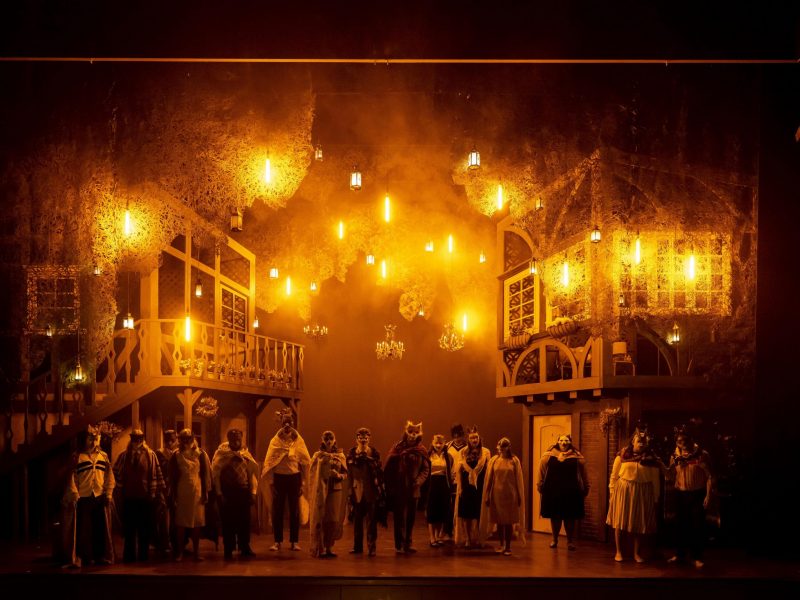Olney Theatre Center artistic director Jason Loewith says Oil is on par with the greatest works of this century. Luckily, the 21st century is only 19 years in, so hopefully the next 81 will set the bar a little higher.
Ella Hickson’s Oil approaches complex themes of industrialism, imperialism and family. The play tirelessly condemns the world’s obsession with and waste of oil through metaphor. And metaphor. And metaphor, metaphor, metaphor. An absurd amount of which are chicken-themed, by the way.
Oil feels a bit like a 10th grader who has suddenly discovered that imperialism is bad and is about to make their whole class listen to them act it out by pretending to eat chicken to represent the gluttony of the oil industry. The play is clever, but not quite clever enough to tie it together with the magic that political theater is more than capable of achieving.
A play can be magical. It can draw you in deep and make you want to stay forever — and it can achieve this while delivering a bold message that confronts the issues of the time. Think Big White Fog by Theodore Ward or The Sign in Sidney Brustein’s Window by Lorraine Hansberry. There is no need to choose between being intellectual and being interesting on the stage.
[Read more: Lena Herzog investigates the mass-extinction of languages on Earth in ‘Last Whispers’]
The saving grace of this production — directed by Tracy Brigden — is Megan Graves, who plays Amy. When she first comes on stage in the second act, Amy is an 8-year-old, and Graves plays her so convincingly that I wanted to know where this child actress came from. In her next scene, unbeknownst to me, she is 15, which I suddenly discovered when she receives oral sex on stage within the first few minutes. What I thought was a crime turned out to be a very talented adult actress who convinced the entire room she was a child, then a teenager, then an adult woman.
Graves took the script and recreated the lived experience of a daughter and her contentious-yet-irreplaceable relationship with her mother. The only time I wasn’t truly waiting for the show to be over was when Graves was on stage.
There is a lot to be said about the nature of Amy’s relationship with her mother, May. The propellant of the playlets through space and time, set across different eras instead of being purely chronological, gives depth to the characters, who retain their identities throughout.
[Read more: Review: ‘Hamlet Replayed’ puts a twist on the classic tale]
As the play takes on the generational issues of repeating the sins of our past and trying to claim our own identities, the relationship played out on stage is a microcosm for generational strife. The repetition of the mothers’ and daughters’ actions — pretentious and boring, but still clearly representative of something — shows two generations that are the same, who want the same things, but cannot stand back to realize it. What are May and Amy besides the same name with rearranged letters, anyway?
This play leaves a lot to discuss, like what a future without oil would look like and what choices a mother will make for her daughter, but it also leaves the audience chatting about the bad Cornish accents and a certain interpretive dance sex scene.
Oil proves that you can be thought-provoking without being good. There is a lot to unpack on stage, but very little of it will be about how much you enjoyed the play.




